Preventive Measures to Avoid Electrical Failures
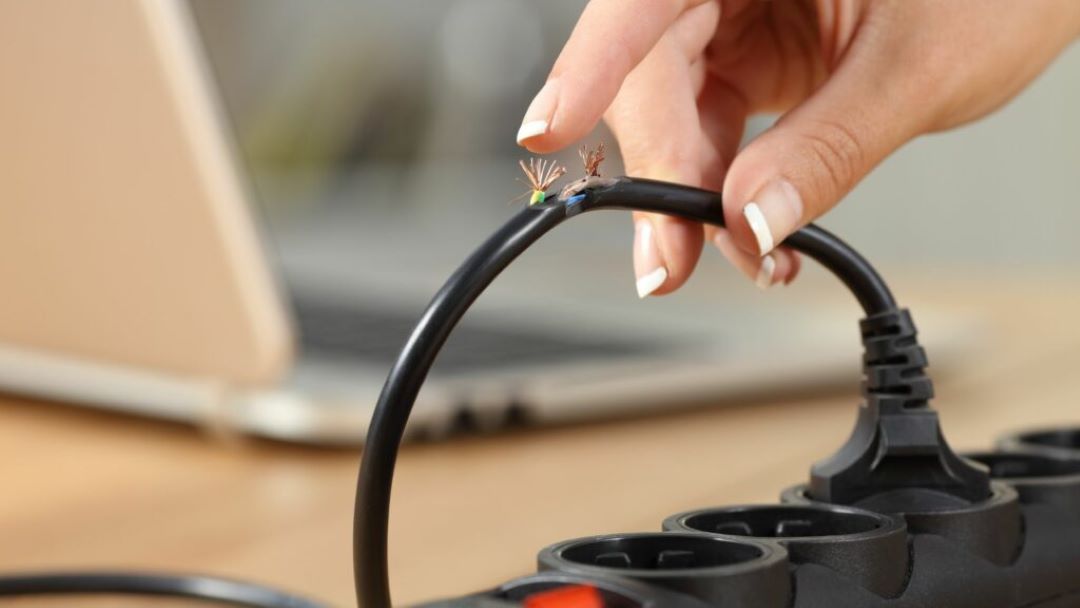
Preventive measures against electrical failures are essential in ensuring the safety and functionality of electrical equipment. By implementing regular inspections, timely maintenance, and using high-quality components, risks associated with electrical failure can be significantly reduced.
This approach not only enhances the reliability of electrical systems but also extends the lifespan of the equipment involved, promoting a safer and more efficient operational environment.
What are the top 10 ways to prevent electrical accidents?
To prevent electrical accidents, the top 10 ways are to:
1- Never Touch Electrical Devices With Wet Hands.
Water is a good conductor of electricity, and wet hands can increase the chances of electrical shocks. It is crucial to ensure that your hands are dry before handling any electrical equipment to avoid electrocution and electrical failures.
2- Use an Residual Current Circuit Breaker (RCCB).
The Residual Current Circuit Breaker (RCCB) safety device automatically interrupts the power supply in case of an electric leakage, preventing electrical accidents and fires which detects earth faults and disconnects the power to prevent shock or fire, acting as a critical safeguard in your electricity system.
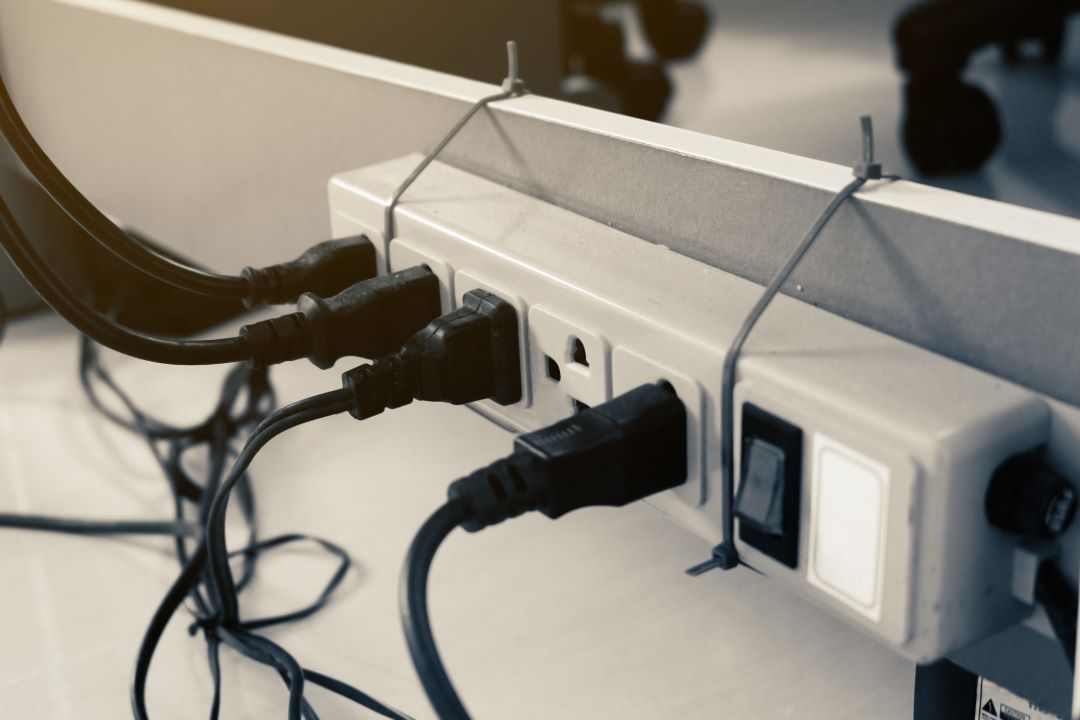
3- Avoid Overloading Outlets.
An overloaded outlet increases the risk of electrical fires and accidents. By spreading out electrical appliances throughout different outlets, you can prevent overloading and reduce the risk of failures. This can cause the circuit breaker to trip or even lead to electrical fires, ensuring that the power distribution within the system remains within safe limits.
4- Keep Electrical Devices Away From Water.
Water is a great conductor of electricity and can increase the risk of electrical accidents and short circuit. Ensure that your electrical devices such as laptops, televisions and other appliances are kept away from water sources to avoid any potential hazards.
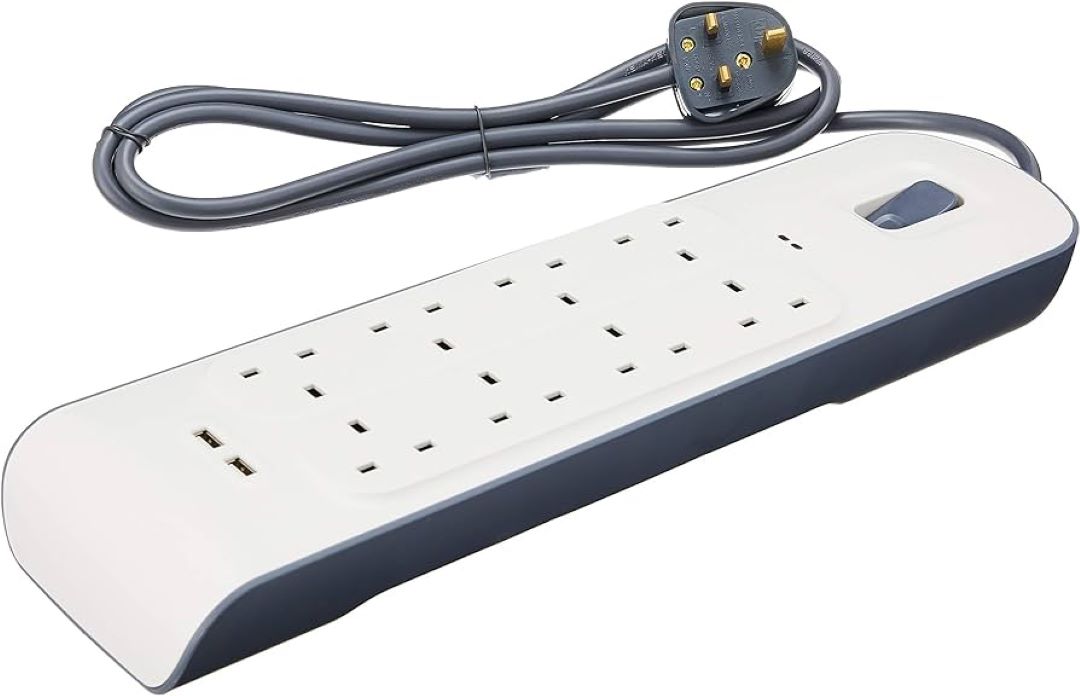
5- Use surge protectors.
Surge protectors are designed to regulate electrical voltage and prevent high voltage surges that can damage appliances or cause fires. By using surge protectors, you minimize the risk of electrical failures and protect electrical equipment from voltage spikes that could cause irreparable damage or a power outage.
6- Make sure your electrical devices are in good condition.
Worn-out cords, frayed wires and broken plugs can increase the risk of electrical accidents and malfunctions. Regularly check your electrical devices for any signs of damage and replace them if necessary to avoid potential hazards.
7- Never attempt DIY electrical work.
Always hire a professional to ensure that all electrical systems and equipment are handled correctly, maintaining the integrity of your power system. Electrical work should only be carried out by trained professionals. Attempting to do DIY electrical work without proper training and knowledge can lead to serious injuries or even death.
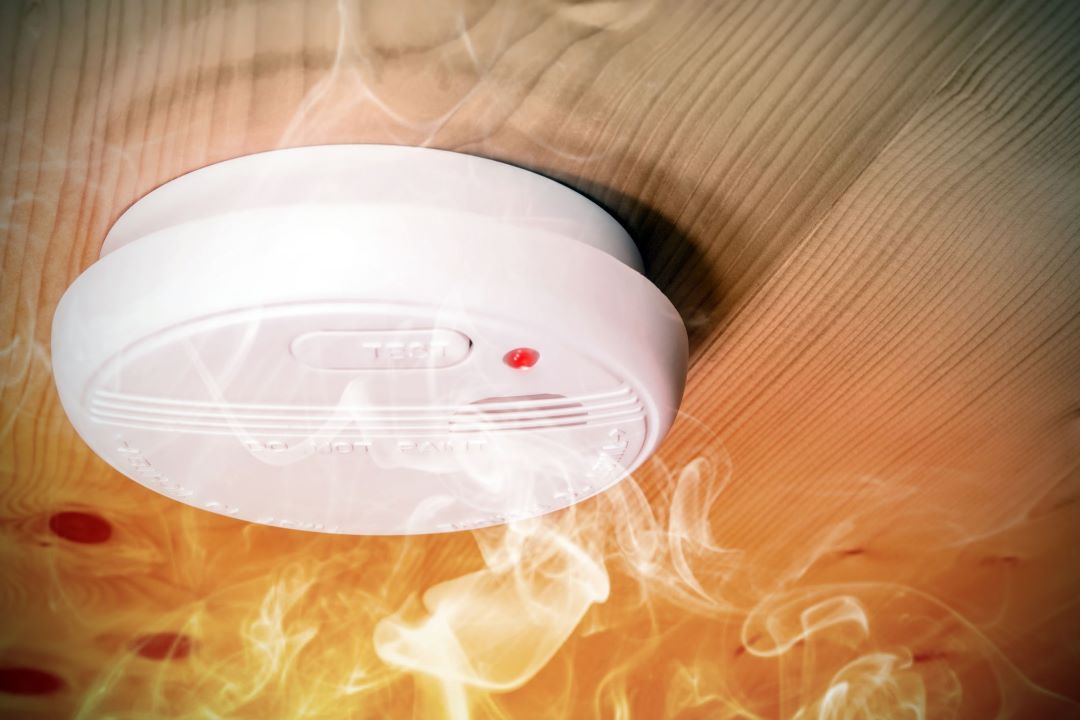
8- Install smoke alarms.
Smoke alarms are vital in alerting you of potential electrical fires. Install smoke alarms on every level of your home or workplace, and make sure to test them regularly to ensure they are functioning properly.
9- Be aware of overhead power lines.
Overhead power lines carry high-voltage electricity and should be avoided at all costs. Make sure to never touch or go near them, even with non-conductive materials like wood or plastic. If you are working on a ladder or tall equipment, make sure to stay clear of any overhead power lines to avoid contact that could result in a power outage or injury.
10- Know where your shut-off switches are.
In case of an electrical emergency, it is crucial to know where your shut-off switches are located. This could be the main circuit breaker in your home or workplace, or individual circuits for specific areas. Knowing how to turn off the power can prevent further damage to your electrical equipment and protect you from potential electrocution.
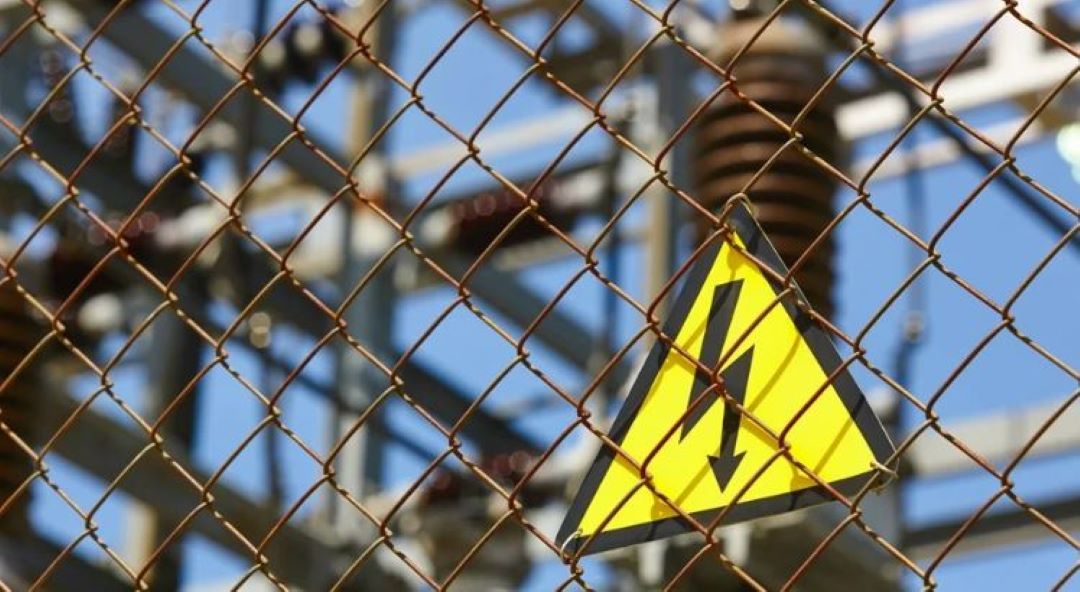
What are the causes and prevention of electrical accidents?
Electrical accidents are caused by faulty wiring, contact with water, attempting to fix electrical devices by yourself, naked plugs and damaged plugs.
An overloaded circuit breaker can also lead to equipment failures and electricity power outages, sometimes sparked by defective equipment or an exposed power line. Continuous monitoring and a well-formulated emergency response plan are critical in preventing accidents, severe burns and injury.
In Singapore, electrical accidents occur, where a power outage led to a chain of equipment failures. In this instance, a lack of proper maintenance and testing of the electrical energy systems in a commercial building resulted in a significant outage.
The repercussions were immediate, affecting not just the building in question but also neighboring areas. The accident was traced back to a failure within the building's electrical distribution system, specifically a defective piece of equipment’s inability to handle the required load.
This power incident underscores the importance of regular and thorough inspection, maintenance, and testing of all electrical equipment and systems to prevent energy failures that can lead to injury or worse.
These electrical accidents can be prevented by taking necessary precautions to inspect tools, power cords, electrical fittings for damage or wear prior to use. Additionally, never touch anything electrical with wet hands. Any damaged or faulty equipment should be labeled and replaced immediately . Faulty equipment that requires repairs should be disconnected from power supply and removed from service until repairs have been done.
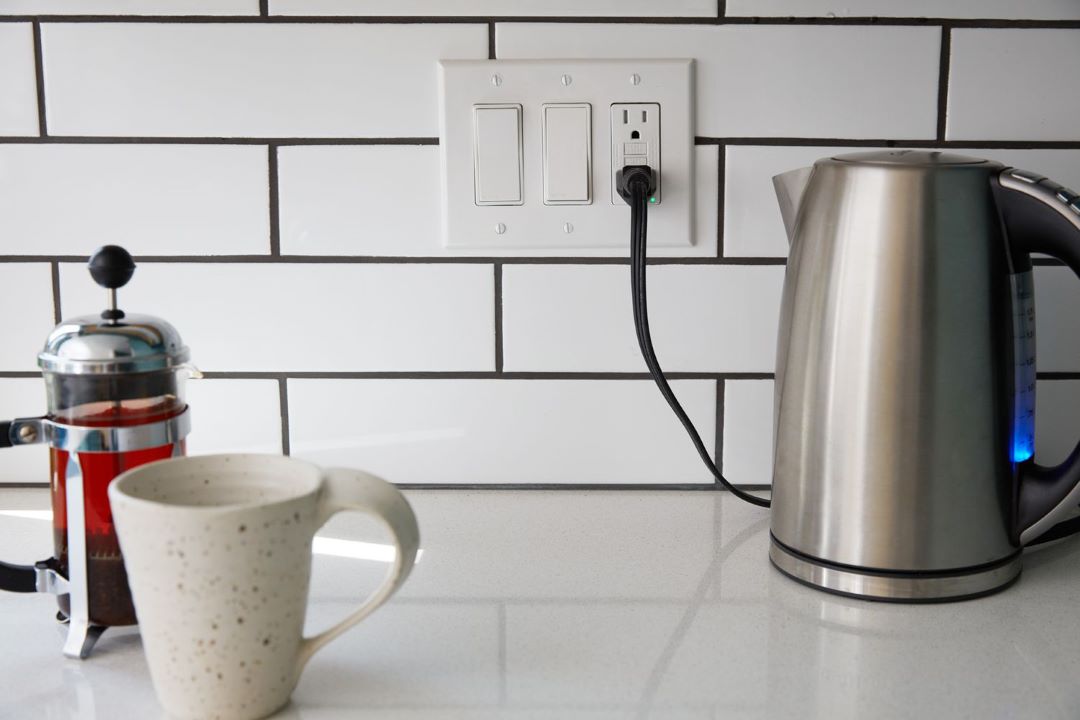
How to prevent electrical accidents at home?
To prevent electrical accidents at home, such as the kitchen, it’s crucial to schedule professional testing and inspection of your home's electrical system to detect any electrical issues and ensure that all electrical equipment is in good condition and will not fail.
Regular maintenance of electrical systems help avoid power outages and dangers associated with high voltage electricity. One of the main causes of electrical incidents is the use of appliances with loose connections or faulty wiring, which can lead to severe consequences, including fires.
Kitchen appliances should never be left on for extended periods unattended, as overheating can result in both electrical and expensive equipment failure.
During thunderstorms, lightning strikes may occur and pose as a significant threat. Using surge protectors can help mitigate this risk and prevent electrical accidents to your electrical system.
To avoid electric shock in the kitchen, ensure hands are dry and wear rubber-soled shoes when handling electrical devices.
In case of an electric shock, promptly disconnect the electricity, if safe to do so, and call for medical help as part of an emergency response plan, remembering that severe burns or more serious injuries require immediate professional medical attention.
The importance of a visual inspection cannot be understated—regularly check power cords and electrical energy appliances for signs of wear or damage. Additionally, adopting safety precautions such as not overloading sockets and using appliances designed for kitchen use can significantly reduce the risk of accidents.
Wearing appropriate protective clothing, like rubber gloves while cleaning or when using electrical appliances near water sources, can further minimize the risk of shock.
In summary, diligent maintenance, adherence to safety guidelines, and being prepared with an emergency response plan are key to preventing electrical accidents and ensuring the safety of your electrical equipment and everyone in the home.
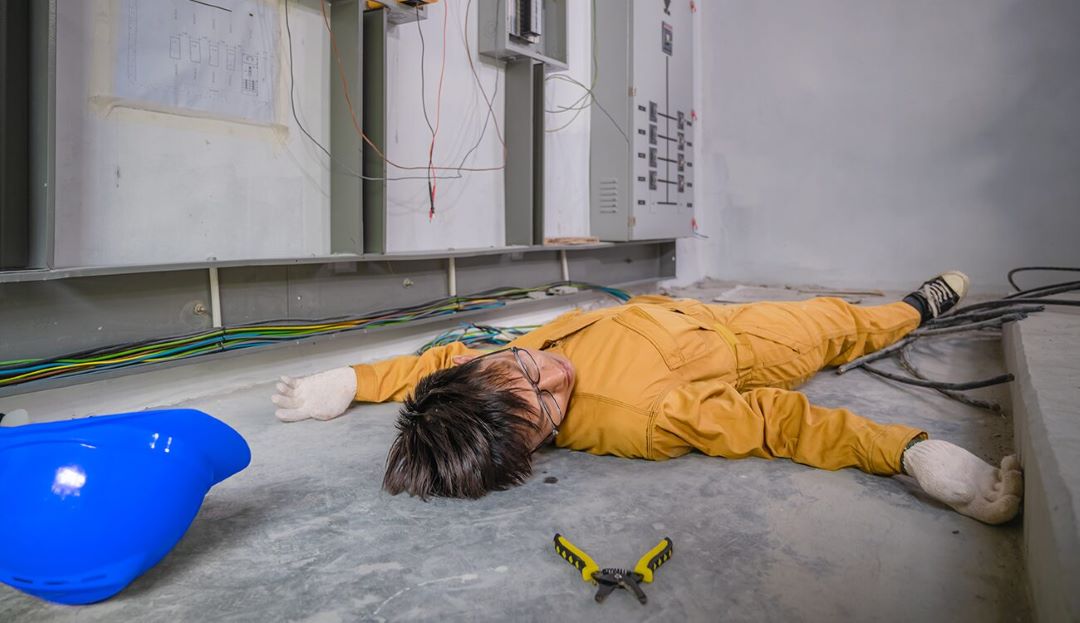
How to prevent electrical accidents in the workplace?
In the workplace, you can prevent electrical accidents by ensuring all equipment is properly grounded to prevent dangerous incidents such as a short circuit, which could lead to equipment failures or injury.
Regular maintenance of the electrical system in the building, including checking for overloads that may occur due to increased demand, is essential in preventing electrical failure that could interrupt business operations or pose safety risks.
Implementing the use of tools and equipment that can withstand the voltage and energy requirements of your workplace prevents overburdening the system. Additionally, providing employees with knowledge about how to safely handle power tools and equipment minimizes the risk of electric shock.
Finally, it's vital to educate everyone in the office on electrical safety and recognizing signs of electrical issues, such as faulty office equipment, flickering lights or exposed wires, and reporting them promptly to prevent dangerous situations from escalating.
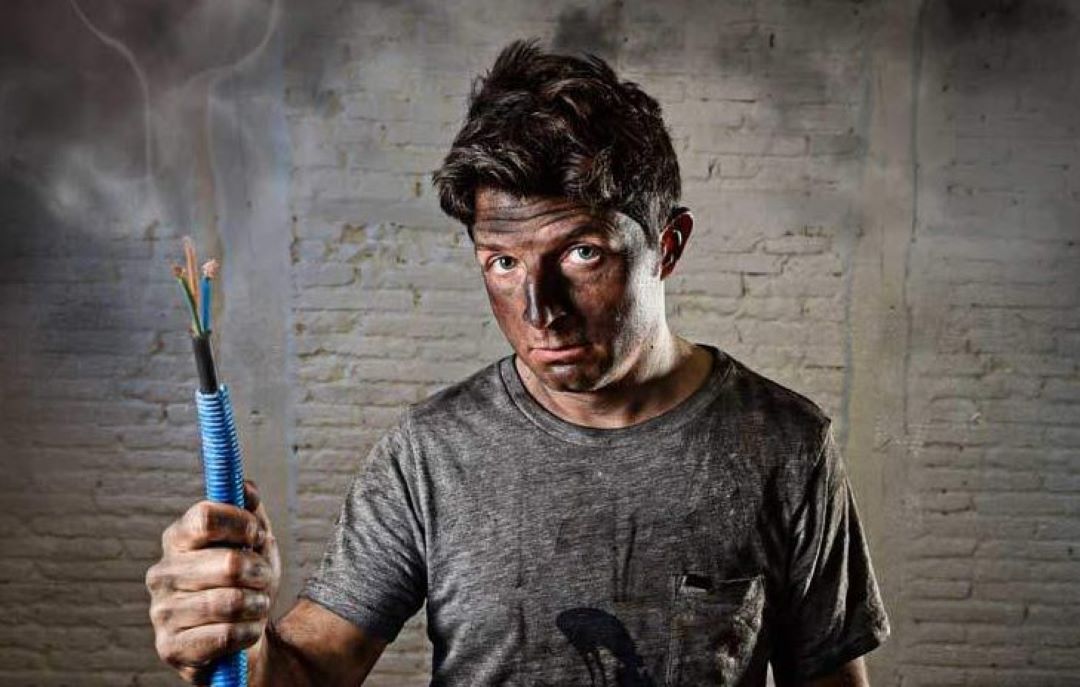
What are 10 safety rules in electrical?
The 10 safety rules in electrical for preventing accidents and ensuring the well-being of individuals both in daily life and the workplace are:
1- Keep electrical equipment away from water.
Water is an excellent conductor of electricity, so it's crucial to keep electrical equipment away from any source of moisture or wet surfaces to prevent injury and avoid short circuits, especially in wet conditions that can lead to devastating damage.
2- Unplug equipment safely.
Before conducting any maintenance or repair work, it is essential to unplug equipment properly and safely. This will reduce the risk of electric shock and other related accidents. This will also help to prevent overheating and severe damage to individual components.
3- Install and tidy electrical cords properly.
Organizing and installing electrical cords properly not only prevents accidents but also promotes a better working environment. This includes keeping cords away from high traffic areas, securing them with clips or ties to reduce the risk of tripping, and avoiding excessive use of extension cords. Additionally, it can also reduce exposure to faults and prevent accidents that can occur from tripping or pulling.
4- Familiarize yourself with your switchboard.
Understanding your building's electrical systems is key to controlling power and maintaining safety. In case of any issues, it is essential to know the location of your switchboard and how to turn off power in an emergency.
5- Look out for electrical lines.
When working or conducting activities outside to avoid contact with high-voltage power and ensure safety around the workplace. Avoid tall structures and trees, which may potentially come into contact or obstruct power lines.
6- Childproof your outlets.
Children are naturally curious, and electrical outlets can be especially dangerous for them. To prevent accidents, install childproof outlet covers or plug protectors to keep little fingers from poking into sockets. Also, avoid leaving cords exposed and within reach of children to safeguard against injuries, reducing the risk of electric shock.
7- Investigate flickering lights.
Flickering lights could be a sign of poor wiring or other electrical issues. If you notice any flickering lights, it is crucial to have a professional electrician investigate and resolve the issue to prevent potential risks as they can be signs of underlying electrical issues that demand immediate attention to prevent potential fire hazards.
8- Install warning signs.
In areas with high exposure to electricity or in business environments where electrical tools and equipment are used, to remind and enforce safety precautions. Examples of commonly used warning signs include "Danger: High Voltage" or "Do Not Touch Electrical Equipment."
9- Don't DIY.
When it comes to electrical maintenance or repairs; hiring professionals helps avoid common mistakes that lead to injuries. DIY electrical work may also increase the risk of fire hazards, so it is always best to leave these tasks to trained and certified electricians.
10- Call for help.
Immediately call for help when you suspect an electrical issue; prompt action can prevent the most common causes of electrical fires and ensure that power systems receive the correct first aid through professional testing and repair.
When seeking electrical assistance, understanding what are the types of electrical tests is crucial to avoid potential scams and ensure accurate diagnosis and resolution of issues.
Each of these rules integrates common sense and specific measures, such as childproofing or avoiding DIY repairs, to shield against the severe damage that electrical mishaps can cause. Proper adherence not only prevents injuries but also contributes to a safe operational environment, whether in a residential setting or a business workplace.
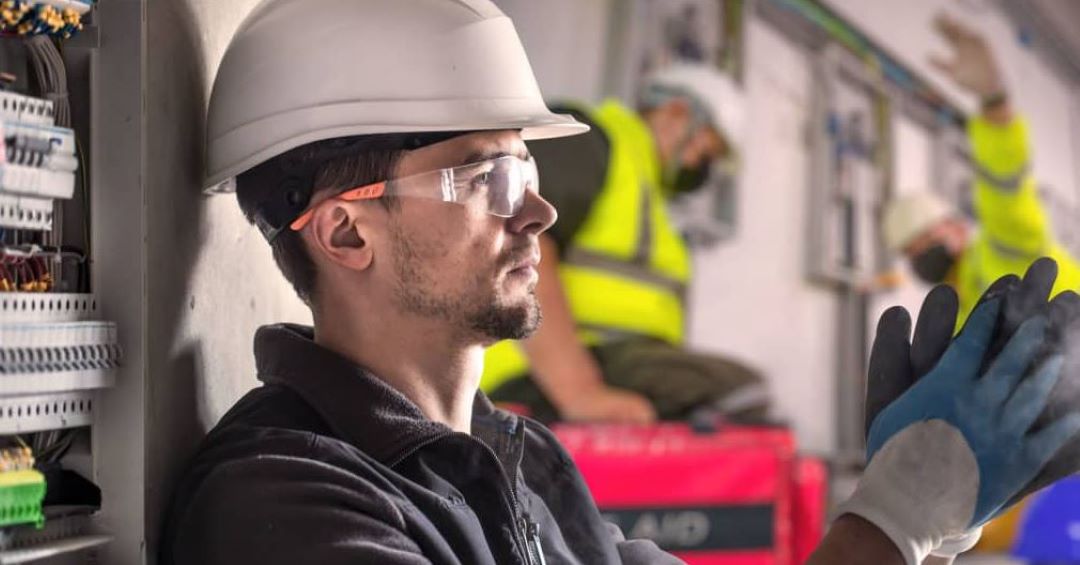
What are 3 basic precautions for electrical safety?
The 3 basic precautions for electrical safety are:
1- Make Sure Your Body Is Completely Dry
Ensure your body is completely dry to reduce the risk of electric shock when handling electrical equipment. If you are sweating or have wet hands, do not touch any electrical appliances until you have dried off. It is also important to keep your work area dry to prevent the risk of short circuits and other electrical accidents.
2- Never Use Broken/ Faulty Equipment
Using damaged or malfunctioning equipment can lead to accidents or injuries. Always check for any signs of wear or damage before use. If you notice any issues, do not attempt to use the equipment and have it repaired or replaced by a professional.
3- Always Turn Off The Mains First
Before starting any electrical work, always turn off the main power supply to prevent electrocution. This includes unplugging any appliances and making sure all light switches are in the off position. It is also important to use energy circuit breakers or other types of safety switches as an added precaution.
4- Wear Rubber Gloves
Wearing rubber gloves provides an additional layer of protection from electric shocks, as rubber is an excellent insulator. When working on electrical equipment, make sure to wear rubber gloves that are specifically designed for dangerous electrical work.
5- Don’t Use Steel Ladders
When working with electricity, avoid using steel ladders since metal conducts electricity, increasing the risk of electric shock. Opt for ladders made of non-conductive materials like wood or fiberglass.
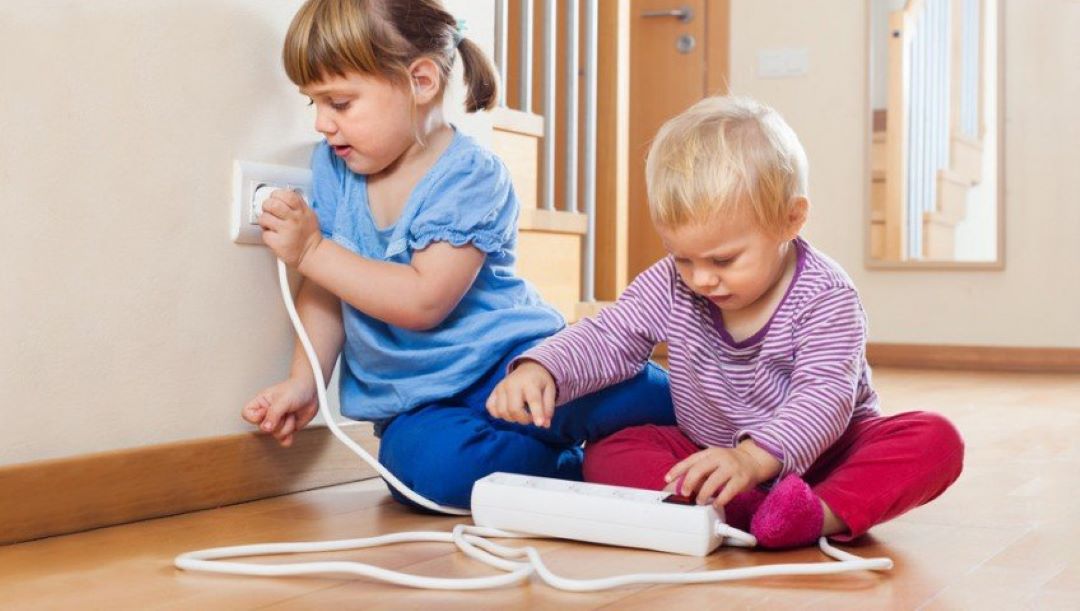
What are your ways to prevent electrical accidents?
To prevent electrical accidents, start with identifying hazard control options using elimination, substitution, engineering, administrative methods, and personal protective equipment (PPE).
Ensure the safe use of electrical equipment by following standard guidelines and using grounded devices to minimize risks.
Be careful with electrical cords—inspect them regularly for damage and avoid using cords with exposed wires or fraying.
Practice extension cord safety by not overloading them and ensuring they are in good condition.
Always turn off power before inspecting or working on electrical systems, reducing the risk of severe burns, equipment failures, or even life-threatening incidents.
Regular inspections are key to detecting electrical hazards early.
Never operate equipment in wet conditions, as water is a common cause of electrical failure and fire.
Use cleaning materials cautiously around power outlets and devices, especially in a business or building environment.
Childproof your outlets at home and keep all electrical devices, from appliances to tools, away from water.
Grounding systems are crucial—install ground fault circuit interrupters (GFCIs) to protect against unexpected surges and reduce fire and shock risks.
Avoid overloading circuits by distributing energy usage evenly and keeping appliances dry to ensure functionality and safety.
Never use damaged equipment, as it may lead to equipment failure, voltage issues, or even power outages.
Conduct monthly inspections of electrical equipment to identify potential hazards and address equipment maintenance proactively.
Pay special attention to power lines during outdoor work, using common sense to stay at a safe distance.
Electrical safety in daily life demands regular testing of systems, knowledge of potential hazards, and adherence to best practices.
By applying these tips, you can safeguard your environment, prevent power outages, and protect against the most common causes of electrical accidents.
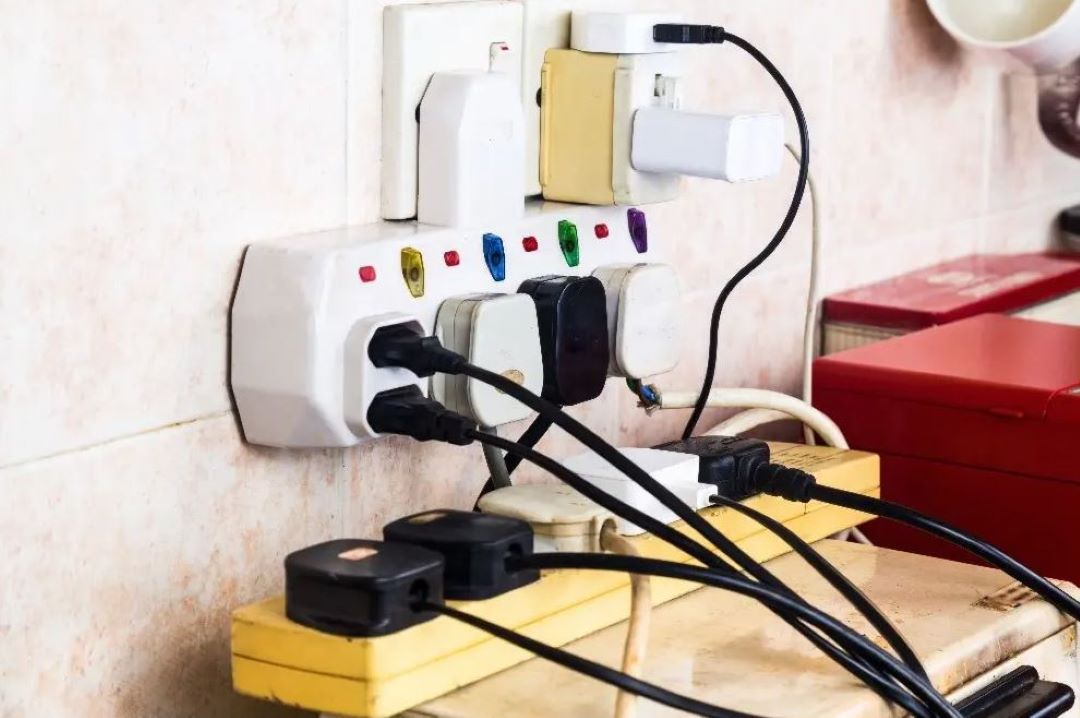
How can we prevent electrical faults?
We can prevent electrical faults by inspecting and testing our electrical components regularly to ensure they are functioning properly.
Damaged or worn parts, such as frayed power cords or defective equipment, should be replaced or repaired promptly to avoid accidents or equipment failure.
Neglecting this crucial step can lead to electrical failure, power outages, or even severe damage to the electrical system.
Properly grounded circuits and breakers are essential in maintaining electrical safety and reducing the risk of electric shock or severe burns.
Regular maintenance and testing also help identify vulnerabilities that, if left unaddressed, could lead to major accidents or long-term problems with electrical equipment.
By being proactive, we contribute to a safer environment and prevent the dangers associated with failing electrical systems.
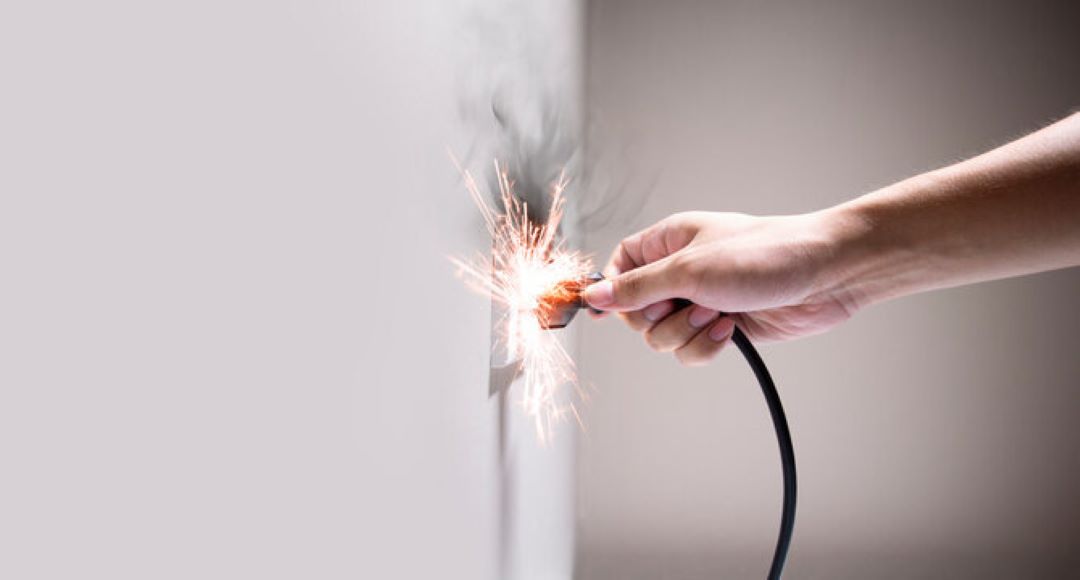
What are the preventive measures of electricity?
The preventative measures of electricity include regular maintenance and thorough inspection of wiring and equipment before each use to reduce the risk of exposure to hazards such as electric shock or severe burns.
Utilizing safe work practices every time electrical equipment is used ensures the reliability of electrical systems while minimizing the chances of equipment failures or devastating damage to buildings and businesses.
Knowing the location and operation of shut-off switches and circuit breaker panels is vital for preventing electrical failure and managing energy effectively during emergencies.
Limiting the use of extension cords and ensuring that multi-plug adapters have circuit breakers or fuses can help avoid power outages caused by overloaded systems.
Additionally, minimizing the potential for water or chemical spills near electrical equipment protects against significant equipment failures and promotes electrical safety.
These measures are essential in daily life to safeguard systems and tools, maintain the continuity of power, and prevent disruptions to business and residential activities.
Proper testing and maintenance ultimately secure electrical energy and reduce the risks associated with defective equipment.
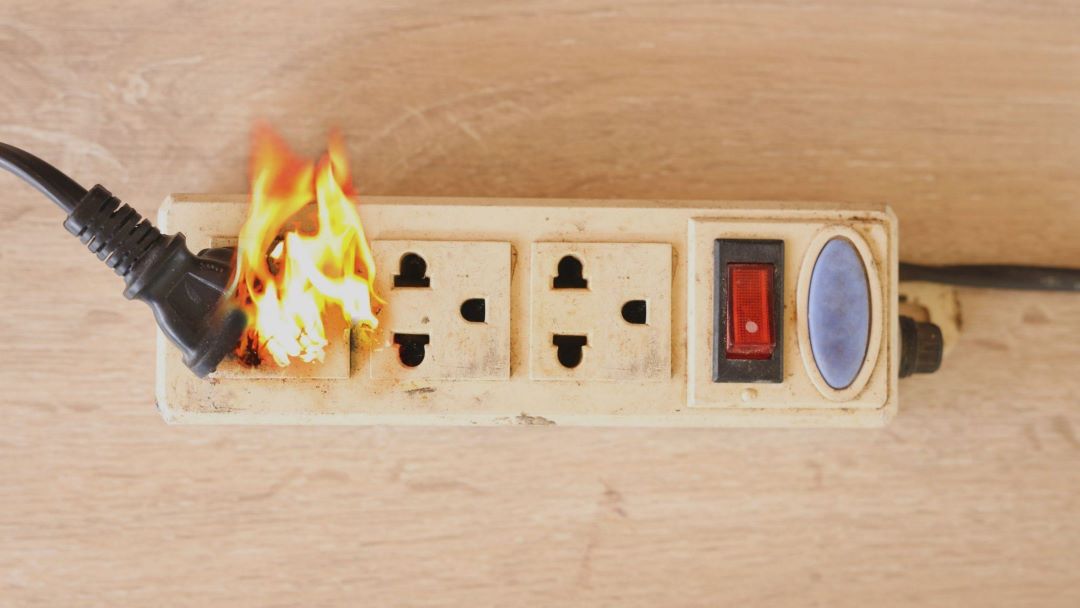
How do you deal with electrical failures?
You deal with electrical failures by systematically addressing potential issues that may occur within your electrical system.
Start by checking the outdoor lights to identify any defective equipment, as equipment failure is one of the most common causes of such problems.
Next, check in with your neighbor to determine if the issue is isolated or part of a broader system failure. Inspect your meter for signs of damage or irregularities that could indicate energy demand issues or defective equipment.
Move on to the DB box, as maintenance here can often prevent accidents that occur due to electrical system faults.
If needed, reset your DB box, but only after ensuring it is safe to do so, as electrical safety is crucial to avoid severe burns or even electric shock.
Knowledge of electrical systems is essential to manage these situations effectively and ensure dangerous outcomes are prevented, whether in daily life, business, or when dealing with other types of equipment failures.
In conclusion, preventing electrical failures is closely tied to the importance of electrical inspection. Regular electrical inspections help catch electrical issues and problems early, so we can take steps to prevent failures and keep our electrical systems safe and reliable.
By proactively implementing preventive measures against electrical failures, addressing potential hazards and vulnerabilities, such as faulty wiring or overloaded circuits; the risk of electrical fires can be significantly reduced, promoting a safer environment for occupants and property, thus ensuring fire safety in electrical installations.